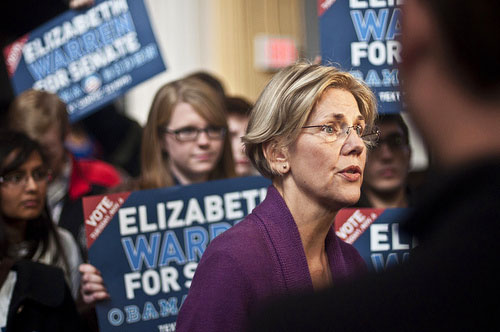The Unwinding: An Inner History of the New America
By George Packer | Faber | $35
THE publishers of New Yorker staff writer George Packer’s new book, The Unwinding, describe it as “an epic and very human portrait of the United States of America in these hard times.” The premise of this account, which views America through the lives of a handful of people, is that sometime after 1960 the nation’s norms and institutions began to unravel, leaving Americans to “improvise their own destinies” and “plot their own stories of success and salvation.”
The stories are told against a political landscape in which the two great twentieth-century shifts in federal government – Roosevelt’s New Deal and the Reagan Revolution – both attract a lingering fondness, and Barack Obama tries vainly to bridge the gap between them by matching community compacts with individual freedoms. All this takes place in a nation increasingly divided by politics and socioeconomic status, amid concerns that the United States is no longer the world’s most powerful nation. American values are increasingly driven by celebrities and materialism, leading inevitably to the loss of both hope and the American sense of good fortune.
This is a book of individual stories because the American response to the social and economic issues of the twenty-first century has been individualistic. It is also a book that leaves it to the reader to discern the threads through the lives of the individuals portrayed and interpret an underlying argument about the greed and immorality of large financial institutions, the failures of modern society, and the consequences of political stagnation. But these threads don’t run through all the stories or connect up in a neat, satisfying way, and I was left pondering whether this disconnection is actually a metaphor for the author’s thesis.
What isn’t clear to me is how the people of the “new America” are dramatically different from those of previous eras. As recounted by Packer, they exemplify in their own ways the self-sufficiency, individualism and drive that is so American. Very often that drive is directed towards materialism, and often it ends in failure, and so perhaps it is not surprising that very few of these people lead happy and fulfilled lives. They want a part of the boom-and-bust economies of Silicon Valley and of the wealth created by real estate, franchise deals and energy. They try, fail and try again. Their puny financial successes contrast with those of Sam Walton, Oprah Winfrey, Peter Thiel and others.
For the most part, these are people on the fringes of educational opportunities, stable employment and meaningful relationships. Some of them toy with religious and political fanaticism, but mostly, again, on the edges. These “everyday” Americans include Dean Price, the son of southern tobacco farmers, who is sure that his redemption lies not in the Baptist religion of his forebears but in energy; Jeff Connaughton, whose education led him out of the south and into top jobs as a political aide but who lacked commitment to the cause; and Tammy Thomas, for whom education, community activism and Barack Obama eventually delivered a meaningful life helping others in the slums of Youngstown, Ohio. Missing are Hispanics, Asians, Native Americans and recent immigrants, though several African Americans and an Indian woman feature.
The Unwinding does highlight, in a very readable and sometimes poignant way, the reality of life for millions of Americans, the majority of whom would call themselves middle-class. Relative to their counterparts in other Western countries, America’s middle-class population is falling further and further behind – in fact, when it comes to middle-class wealth, the United States ranks twenty-seventh. While the rich get richer, middle incomes have shrunk 8.5 per cent since the start of the millennium. Unemployment is high, and the cost of living has increased.
Predictably, the economic pressures facing the middle class have left families deeper in debt. This has been aggravated by the global financial crisis, which pushed millions of Americans into joblessness and home foreclosure. Today, some forty-six million Americans live in poverty; many of them have become poor only recently. The welfare safety net has huge holes that mean many in need slip through, and is fraying even further as local and state governments slash budgets and federal cuts bite.
All this is happening as American society is increasingly driven by material culture. Other societies or cultures consider Americans to be materialistic, but Americans believe that their luxuries are rewards for their hard work. Members of the middle class thus see themselves as doubly punished – first, by losing their jobs and incomes, then by loss of homes and possessions.
MUCH of The Unwinding is an exploration of how Americans react to those losses. Many people slide into hopelessness; families split up, domestic violence worsens, suicides rise. It’s also possible to see the feeling of loss as the major contributor to the increasingly bitter divides in the political life of the nation.
Yet, despite the scale of these problems, there have been surprisingly few protests. Henry Ford once said, “It is well enough that people of the nation do not understand our banking and monetary system, for if they did, I believe there would be a revolution before tomorrow morning.” For a while, when the Occupy Wall Street movement was at its peak, it seemed that perhaps a larger social explosion was looming, but that has faded. The Tea Party might be the one exception here, although it has moved away from the community into the political arena.
But if the traditional forms of class struggle have not arisen, this book highlights the individual acts of resistance and resilience. The stories of well-known (read, successful) Americans woven into this book provide both contrast and context. The section on Wal-Mart founder Sam Walton, for instance, describes how the “hollowing out of the heartland” has been good for the company’s bottom line. The massive retailer’s cheap prices come at the cost of lower wages, fewer union jobs and a growing number of part-time jobs without benefits, and the company’s profits are not invested in local communities but transferred back to headquarters. Packer tells the story of Danny Hartzell’s struggle to support his family of four, including a daughter with leukaemia, on $8.50 an hour in a part-time job stocking Wal-Mart shelves in Tampa.
In many ways, though, the most interesting chapter in The Unwinding tells the story of Elizabeth Warren. Apparently gleaned from secondary sources, this chapter traces her journey from the depressed and depressing world of the failing middle class in Oklahoma City to presidential consultant and, ultimately, senator. It’s atypical among the stories in this book – but not perhaps atypical of the real America.
The beneficiary of a good education, Warren arrived at her radicalism, like many conservatives before her, by witnessing the collapse of the institutions that had sustained the old, secure way of life. Her keen sense of justice drove her to tackle the consequences of the unravelling of government financial regulations and the weakening of financial institutions created by the Roosevelt administration after the Great Depression to give Americans security and prosperity – institutions that arguably helped build the greatest middle class the world has seen. Their unravelling under Reagan and the both Bush presidencies triggered the housing bubble and the recession, with consequences not just for the United States but for the world.
Warren’s plain speaking about the hard-pressed middle class, the need for a fair playing field, and the excesses of finance earned her lots of enemies, but saw real improvements when President Obama established the Consumer Financial Protection Bureau in July 2010. Many of the people in this book probably know little or nothing about this agency, but its existence today means that their financial disaster stories of yesterday will not be repeated.
In this and other ways, The Unwinding highlights the fact that actions designed to improve the fabric of communities are the only ones that have positive and lasting impacts for individuals. We see this vividly in Tammy Thomas’s story: as manufacturing jobs were lost and her community decayed, she was increasingly galvanised to organise locally. Not only did this give her a job and enable her to help others, it also expanded her horizons. She saw Obama’s election as “a chance to do something for real.”
WOVEN into these stories, ever so subtly, is Barack Obama’s own story. Although he and his mother eluded the downward draughts of poverty, as a black man who has worked as a community organiser he knows very well the elusiveness of the American dream and how fragile communities and individuals need a helping hand if they are to make it. He has said that the country’s struggle over race will not ease until the political process in Washington begins addressing the fear of many people that financial stability is unattainable. “Racial tensions won’t get better; they may get worse, because people will feel as if they’ve got to compete with some other group to get scraps from a shrinking pot,” he has said. “If the economy is growing, everybody feels invested. Everybody feels as if we’re rolling in the same direction.”
A recent poll shows how a great number of Americans are redefining the American Dream to mean not affluence but basic financial stability, with nearly one-in-four people between the ages of eighteen and twenty-four now defining their goal as being debt-free. That’s more than those who dream of owning a home. Even those who achieve the dream of college must face the nightmare of finishing with an average student loan debt of $27,000. It’s interesting to realise that the phrase “the American Dream” was coined in the Roosevelt years and came into present popularity in the Reagan years. Now, in the Obama years, the nature of the dream is changing – and perhaps, in this new definition, is diminished. As Obama has warned, without concerted action “our founding precept about wide-open opportunity and each generation doing better than the last will be a myth, not reality.”
I’m not sure that I have accurately assessed and interpreted what George Packer intended in his book, or that these are the conclusions another reader would reach. But I will often be checking my thoughts against rereadings of the book – which will be a constant on my bookshelf. •




